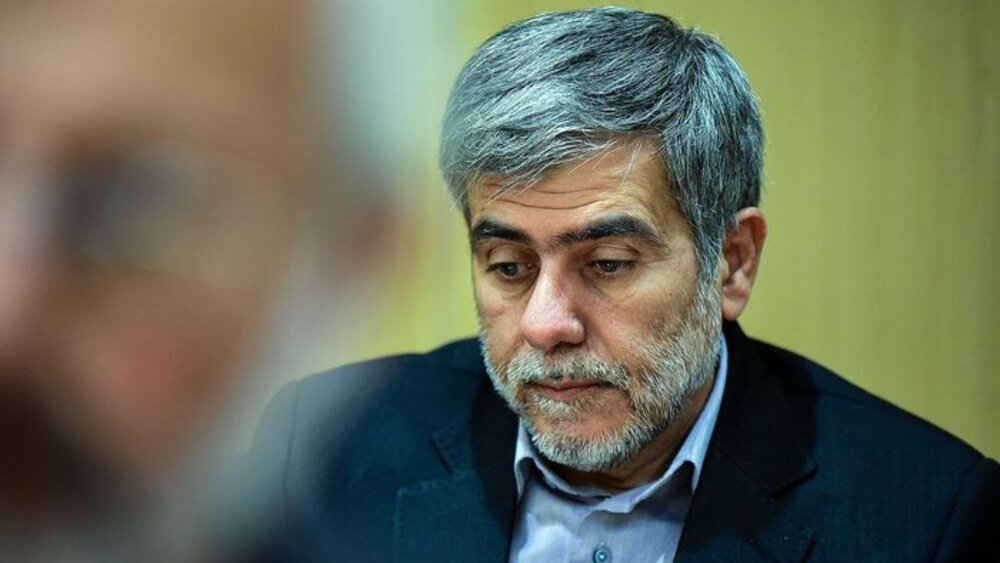Ex-nuclear chief: Agreement with IAEA prevent inventing excuses

TEHRAN - The former chief of the Atomic Energy Organization of Iran, (AEOI), Fereydoun Abbasi, says that the agreement with the International Atomic Energy Agency (IAEA) will prevent excuses.
IAEA chief Rafael Grossi came to Iran late on Saturday in order to begin his consultations with the new Iranian administration.
Iran had vetoed the IAEA’s request to have “full” access to the footages and memory cards of the nuclear sites. The decision followed a parliamentary legislation in December 2020, which tasked the AEOI to limit inspection of Iran’s nuclear activities in response to the Western side’s lack of commitment to the terms of the JCPOA, the official name for the 2015 Iran nuclear deal.
The legislation, titled “Strategic Action to Lift Sanctions”, requires the government to raise uranium enrichment levels to 20% and install advanced centrifuges.
“If the parties in the Iran deal live up to their commitments, data will certainly be provided to the International Atomic Energy Agency to perform its legal duties,” Abbasi said, IRNA reported on Monday.
The new chief AEOI Mohammad Eslami on Sunday described his talks with IAEA Director General Grossi as “good and constructive”.
"Mr. Rafael Grossi came to Tehran at the invitation of the Atomic Energy Organization of Iran and we had good and constructive talks with him," Eslami said in a joint press conference with Grossi.
Eslami also said he will hold talks with Grossi on the sidelines of the IAEA Board Governors meeting.
"We decided to participate in the next meeting and continue our talks on the sidelines of the meeting," Iran’s new nuclear chief stated.
Eslami added, "The spirit governing the negotiations is to create opportunities for the development of interactions, cooperation within the framework of the rules and regulations of the International Atomic Energy Agency."
On the visit of Grossi to Iran, Abbasi noted: “According to the published news, the saved films are to be sealed and stay in Iran and new memories will be replaced.”
The former head of Iran’s atomic organization added: "This issue prevents countries that have doubts about Iran's activities from inventing excuses. “
This means that the IAEA inspections in Iran will continue and no data will be destroyed in terms of supervision, Abbasi noted.
He added if the Western parties to the JCPOA fulfill their obligations, this data will certainly be provided to the IAEA to perform its legal duties.
Abbasi described the agreement with the IAEA as a sign of Iran's goodwill, saying: "Our partners in the JCPOA - those who are signatories - must live up to their commitments because we cannot fulfill our obligations unilaterally. The JCPOA agreement is multilateral, and each of the signatories must live up to their commitments.”
He went on to say that Iran “should not accept anything new," stressing that sanctions should be lifted.
Abbasi who sits on the Parliament Energy Committee added: "The data is being recorded and this data will be provided to the Agency when other countries fulfill their obligations."
The parliamentarian also said the IAEA should not just monitor Iran’s nuclear activities, suggesting it should also monitor the JCPOA parties and their commitments.
“Otherwise, it should report that their obligations have not been fulfilled, and this should be considered as ‘verifiable documents’ in international forums and courts”.
In July 2015, when the Joint Comprehensive Plan of Action was signed between Iran and the 5+1 group (the five permanent members of the UN Security Council and Germany), the IAEA was tasked to monitor Iran’s commitment to the agreement.
According to the JCPOA, Iran agreed to put limits on its nuclear activities in exchange for termination of economic and financial sanctions. However, in May 2018 Trump quit the nuclear agreement, returned sanctions and imposed new ones. The sanctions were in line with Trump’s “maximum pressure” campaign against the Islamic Republic.
